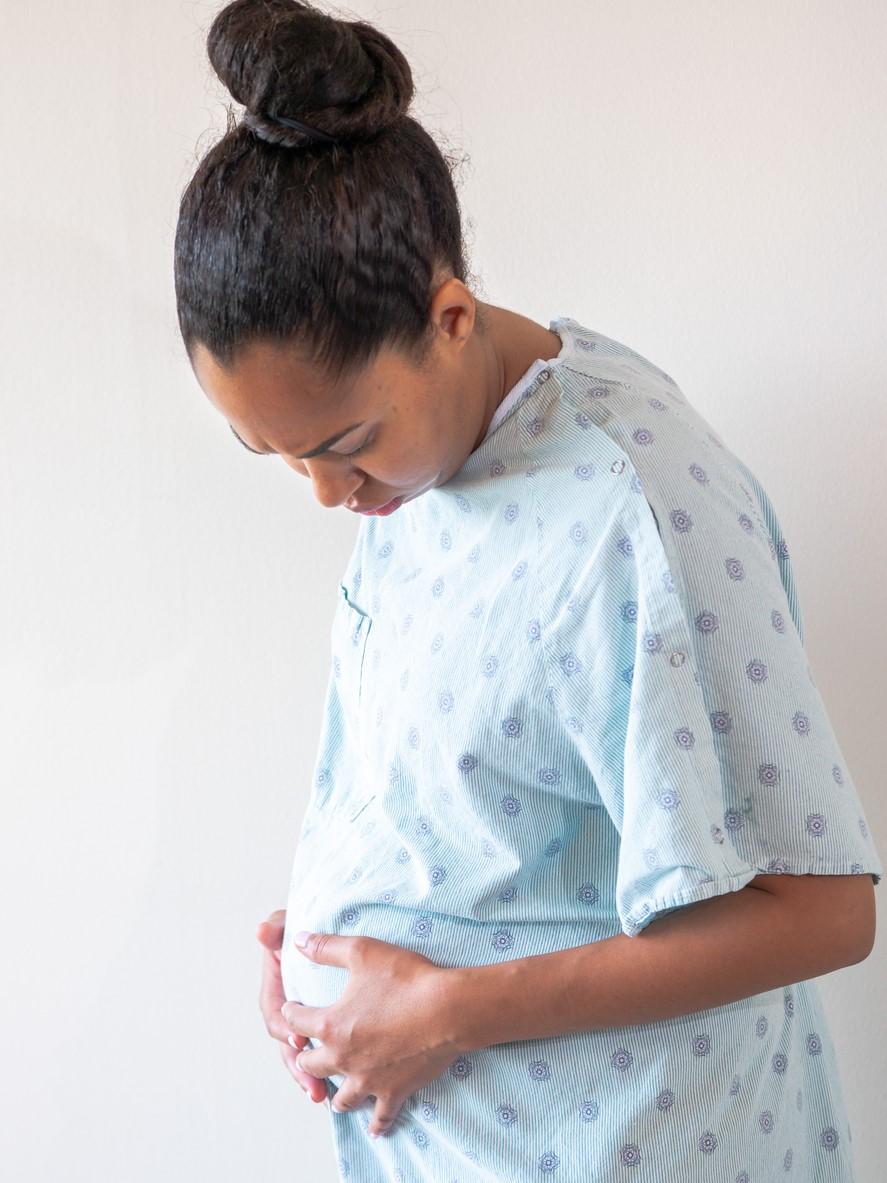A pair of new US studies highlight the increased risks faced by pregnant women infected by SARS-CoV-2—particularly after the emergence of the Delta (B1617.2) variant—one finding nearly double the risk of stillbirth and the other showing five times the risk of death.
The studies were published late last week in Morbidity and Mortality Weekly Report.
Stillbirths rare but more of a risk with COVID
In the first study, the Centers for Disease Control and Prevention (CDC) COVID-19 Response Team analyzed data from the Premier Healthcare Database Special COVID-19 Release, a large, hospital-based database from March 2020 to September 2021, a period that included the emergence and eventual dominance of Delta.
Of all pregnant women in the database, 53.7% were White, 50.6% had private health insurance, 15.4% were obese, 11.2% had diabetes, 17.2% had high blood pressure, 1.8% had multiple-gestation pregnancy, 4.9% smoked, and 1.73% had COVID-19. The study authors noted that most of the women who tested positive for COVID-19 at delivery were likely unvaccinated.
Among 1,249,634 deliveries at 736 hospitals, stillbirths were rare, at 0.65%, but the rate was 1.26% among 21,653 deliveries to pregnant COVID-19 patients, compared with 0.64% among 1,227,981 deliveries to non–COVID-19 patients. Stillbirths were defined as fetal deaths at 20 weeks' gestation or later.
The risk of stillbirth among COVID-19 patients was almost twice as high among uninfected patients (adjusted relative risk [aRR], 1.90; 95% confidence interval [CI], 1.69 to 2.15). But the increased risk before Delta was around 50% (aRR, 1.47; 95% CI, 1.27 to 1.71), compared with quadruple the risk after the variant began circulating widely (aRR, 4.04; 95% CI, 3.28 to 4.97).
Risk factors for stillbirth among pregnant COVID-19 patients included chronic high blood pressure, multiple-gestation pregnancy, adverse cardiac events, placental abruption, sepsis, shock, acute respiratory distress syndrome, the need for mechanical ventilation, and admission to an intensive care unit (ICU). The link between adverse cardiac events and ICU admissions was stronger after Delta became dominant.
"Implementing evidence-based COVID-19 prevention strategies, including vaccination before or during pregnancy, is critical to reducing the impact of COVID-19 on stillbirths," the researchers wrote.
They also called for prospective studies to identify the biological mechanism for the increased risk for stillbirth in pregnant COVID-19 patients and evaluate differences in risks related to the timing and severity of illness and the contribution of maternal risk factors.
"In addition, further investigation of vaccine effectiveness during pregnancy, including prevention of stillbirth, is warranted," the authors concluded. "Most importantly, these findings underscore the importance of COVID-19 prevention strategies, including vaccination before or during pregnancy."
From 5 to 25 deaths per 1,000 after Delta
The second study, led by Mississippi State Department of Health researchers, evaluated the deaths of pregnant women diagnosed as having COVID-19 in Mississippi from Mar 1, 2020, to Oct 6, 2021.
During this period, 1,637 COVID-19 cases were identified among pregnant women, and 15 (0.92%) died of their infections (9 per 1,000 cases, or a 0.9% death rate). In comparison, 2.5 COVID-19 deaths occurred among 1,000 infections in nonpregnant women of reproductive age.
Six of those deaths (5 per 1,000 cases during pregnancy, or 0.5%) occurred before Delta became the dominant SARS-CoV-2 strain in July 2021, and nine occurred after (25 per 1,000, or 2.5%). For reference, 2.1 per 1,000 died among nonpregnant women of reproductive age before Delta, while 3.3 per 1,000 died after it became dominant.
All patients had been admitted to an ICU, 14 needed invasive mechanical ventilation, and 7 had an emergency cesarean delivery, including 2 at the patients' bedside. Three patients died during pregnancy, resulting in 1 miscarriage at 9 weeks and 2 stillbirths at 22 and 23 weeks' gestation, and 12 died after a live birth (median time from delivery to death, 5 days).
Median age at death was 30 years, 9 were Black, 3 were White, and 3 were Hispanic; during the study period, about 43% and 5% of births in Mississippi were to Black and Hispanic women, respectively. Median time from symptom onset to death was 18 days, both before and during Delta dominance.
Fourteen decedents had chronic medical conditions, and none had been fully vaccinated against COVID-19; 5 deaths occurred before vaccination became available, 1 decedent was partially vaccinated, and 9 were unvaccinated. None of the women had received monoclonal antibodies as treatment.
The authors noted that the CDC recommends that pregnant women get vaccinated against COVID-19 to prevent severe illness, death, and adverse pregnancy outcomes. They added that Mississippi maternal mortality review committees will review all COVID-19–related and -unrelated deaths among pregnant women in the state to determine their relationship to pregnancy, identify risk factors such as health inequities, and develop recommendations to prevent deaths in this population.
"Given existing disparities in vaccination rates among pregnant women, partnerships to address vaccine access, hesitancy, or other concerns about vaccination can enhance fair and just access to COVID-19 vaccination, including among Black persons and Hispanic persons," the researchers concluded.





















